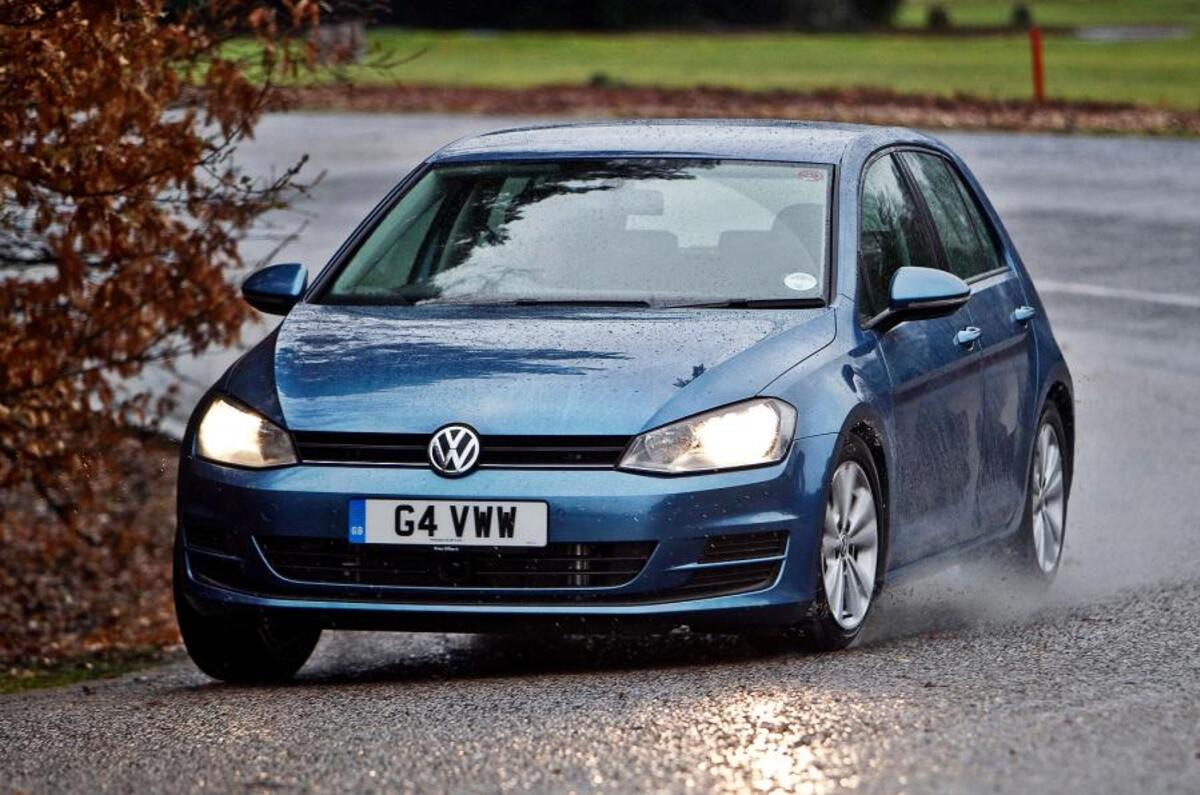Volkswagen is starting the technical fixes for its Volkswagen Golf models following the ongoing emissions scandal by recalling 2.0-litre TDI BlueMotion engined cars in Germany.
The recall is likely to include both hatchback and estate models, and is the first wave of a total of 15,000 affected Golfs in Europe. Other models are due to follow once their fixes have been approved by the German Federal Motor Transport Authority (KBA); the Volkswagen Passat is the most likely next candidate.
VW UK has confirmed that no further approvals are needed before UK cars are recalled, so affected British owners can also expect to be contacted by their local dealership for a free appointment for the fix to be done.
Volkswagen is doing the recalls to address issues with its cars’ software after it was found that several models in the USA were running defeat devices to cheat emissions tests.
The car maker says it has been working at full speed to design and implement technical solutions, with Europe so far being the only region to come to a successful fix agreement.
The fixes are said to have no effect on fuel economy and car performance, which has led VW to argue it won’t be required to offer compensation to affected owners. This contrasts with what is happening in the US, where it is thought the fixes could impact performance. As a result, affected US owners are entitled to a $5000 payout or the option of having the car bought back by VW.
VW boss Herbert Diess believes that once more Golf variants are recalled, the Passat will be the next model to be fixed. “We have very successful results on test beds, but it takes time to refit a diesel engine: you need to test it at high and low temperatures, [at different] altitudes and look into all customer expectations to prove all customer expectations are met,” he said.
“Passat customers in Germany will get the work within the next few weeks, and Golf customers within a week - and this will roll out for all our customers quickly.”
Volkswagen hopes to fix the 11 million affected cars worldwide before the close of this year, but has admitted it could stretch into 2017.




Join the debate
Add your comment
reliability
I suspect it is possible to
How to fix them
You could not be more wrong ersatz
Euro VI cars, and euro V, produce very few particulates as they are fitted with particulate filters. It is direct injection petrol engined cars that are having problems meeting regulations on particulates. The very small particles <2.5 microns produced by petrol cars that can cross from your airways into your bloodstream are the really dangerous particles. In recent research carried out in London travelling on a train exposes you to more particulates than in the street, underground trains are some of the worst polluters for particulates plus old diesel trains but even modern electric trains produce many particulates from the rails, wheels and brakes.
WHO Scientific report
If the diesel particles don’t get you the NOx will. Just read the WHO report on diesel fumes.